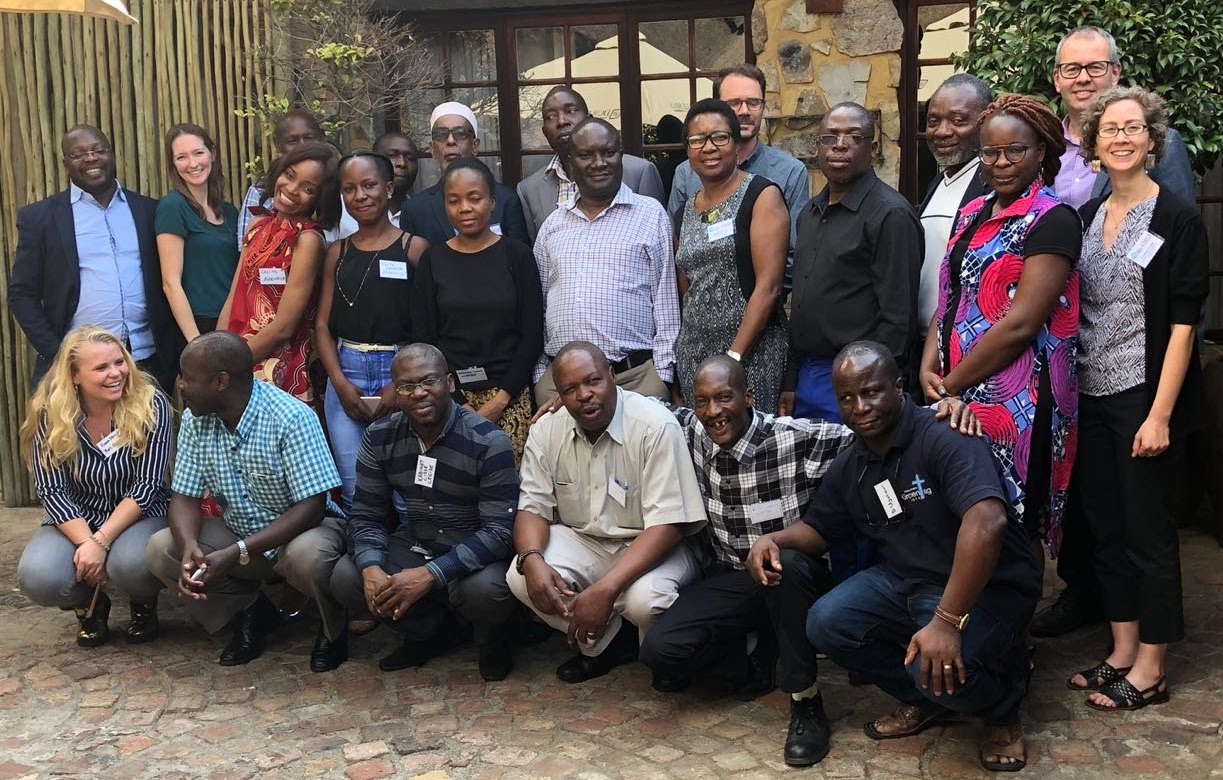
In November, over 40 representatives of human rights and environmental organizations across the continent came together in Pretoria, South Africa to examine the contours of development finance and investment in Africa today and to strategize how to advance a different type of development – one led by African peoples and communities.
In the three-day event, organized by the Coalition for Human Rights in Development and the African Coalition for Corporate Accountability (ACCA), participants questioned a development model characterized by larger and larger megaprojects and an increasing reliance on the private sector. “The current development model being promoted in Africa is private sector led development and policy reforms to pave the way for Public-Private-Partnership (PPP) investments in infrastructure,” said Aly Sagne, of Lumiere Synergie pour le Développement. “This leads to deregulation, privatization of public services, long term debt, threats on the local private sector, and poor implementation of safeguards,” he added.

Participants discussed the Compact With Africa, a new initiative by G20 and African states, together with the World Bank and African Development Bank, through which African governments are pledging commitments on a wide range of policy reforms to attract private investors – from changes in tax laws to new special courts just for investors.
Perhaps the key concern of workshop attendees was that these critical decisions about development are taking place without the involvement of civil society and without the input of those who have the most at stake, including poor communities, indigenous peoples, and women. Participants shared various cases of investments (Guinea, Kenya and Senegal), which have failed to engage local communities and too often have fueled human rights abuses and destruction of livelihoods and natural resources. Participants also examined cases in which investments were created in partnership with local communities, and they questioned why there isn’t more support for these types of initiatives.
“The development model being promoted in our region doesn’t recognize the primary role of indigenous peoples and local communities, leading to a lack of sustainable development,” said Yator Kiptum David, Executive Director of the Sengwer Indigenous Peoples Programme in Kenya. “Financiers must consult and incorporate indigenous peoples and local communities in designing, implementing, monitoring, and evaluating development projects that are carried out within their ancestral lands.”
A key component of the workshop was a half-day Dialogue with Development Officials involving representatives from six different development finance institutions and agencies. Workshop participants and bank officials exchanged different perspectives on the type of investments that should be prioritized in the region and on what has been the impact of previous development initiatives.
Several of the financiers expressed their institutions’ commitments to civil society engagement and flagged opportunities for participation at the project level or in upcoming policy reviews. At the same time, civil society representatives raised concerns regarding the banks’ lack of disclosure of project information, inaccessibility of country offices, and failure to engage with local communities. Several financiers committed to specific steps to facilitate greater transparency and participation and all expressed interest in continuing the dialogue.
“The World Bank and the other so-called development banks have to stop funding extractive industries projects that have a high potential for human rights violations and particularly violations of local populations’ rights,” said Delphine Djiraïbé, Chief Attorney of the Public Interest Law Center in Chad. “Money dedicated to development should be used for projects that respect human rights and the environment, and are consistent with the United Nations Guiding Principles on Business and Human Rights.”

In a final communique, workshop participants called on African governments and development financiers to “respect the rights of communities, and especially marginalized groups, to determine their own development paths and priorities,” and to “advance development and infrastructure that supports social welfare, domestic industries, small businesses and smallholder farmers.”
The workshop concluded with a roadmap for future collaboration among civil society participants, including trainings, coalition building at the national and regional level, advocacy at the African Development Bank, and strengthening awareness and coordination around the Compact With Africa.
“It is my hope that we should continue to network, share information and to continue with capacity building of members of the coalition,” said Yator David Kiptum.
“African civil society organizations are committed to engaging with the African Development Bank and other institutions and we hope to work together to mutually reinforce our capacity to monitor development finance institutions throughout the continent,” added Aly Sagne.
*The workshop organizing team included African Coalition for Corporate Accountability and the Coalition for Human Rights in Development, with Accountability Counsel, Both ENDS, Centre for Applied Legal Studies, Economic and Social Rights Centre – Hakijamii, Friends of the Earth – US, International Accountability Project, Heinrich Böll Foundation, International Rivers, Jamaa Resources Initiative, Lumière Synergie pour le Développement, Public Interest Law Center, and Zimbabwe Environmental Law Association, with financial support from Heinrich Böll Foundation, 11th Hour, SOMO, Global Green Grants, and BothENDs.
